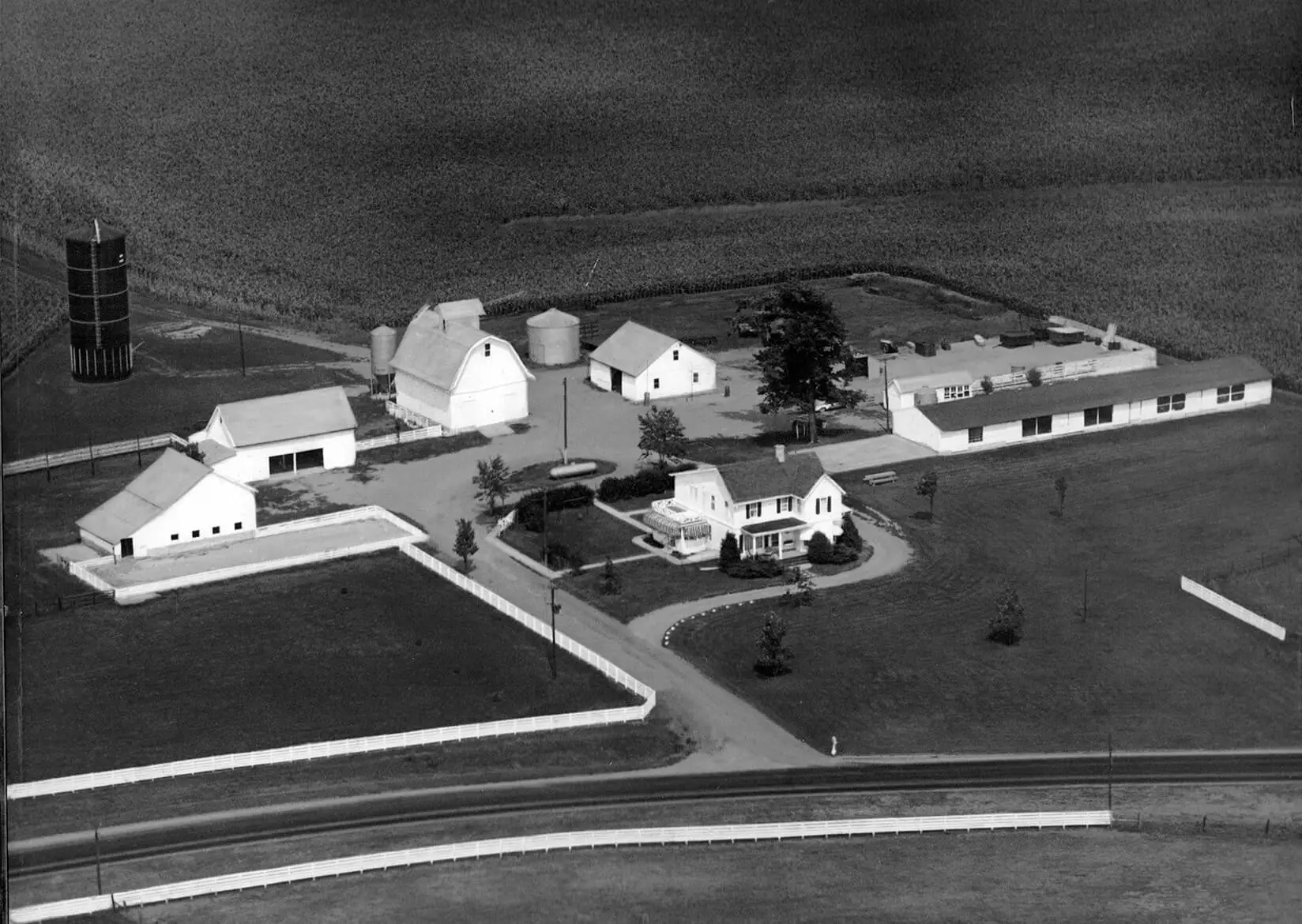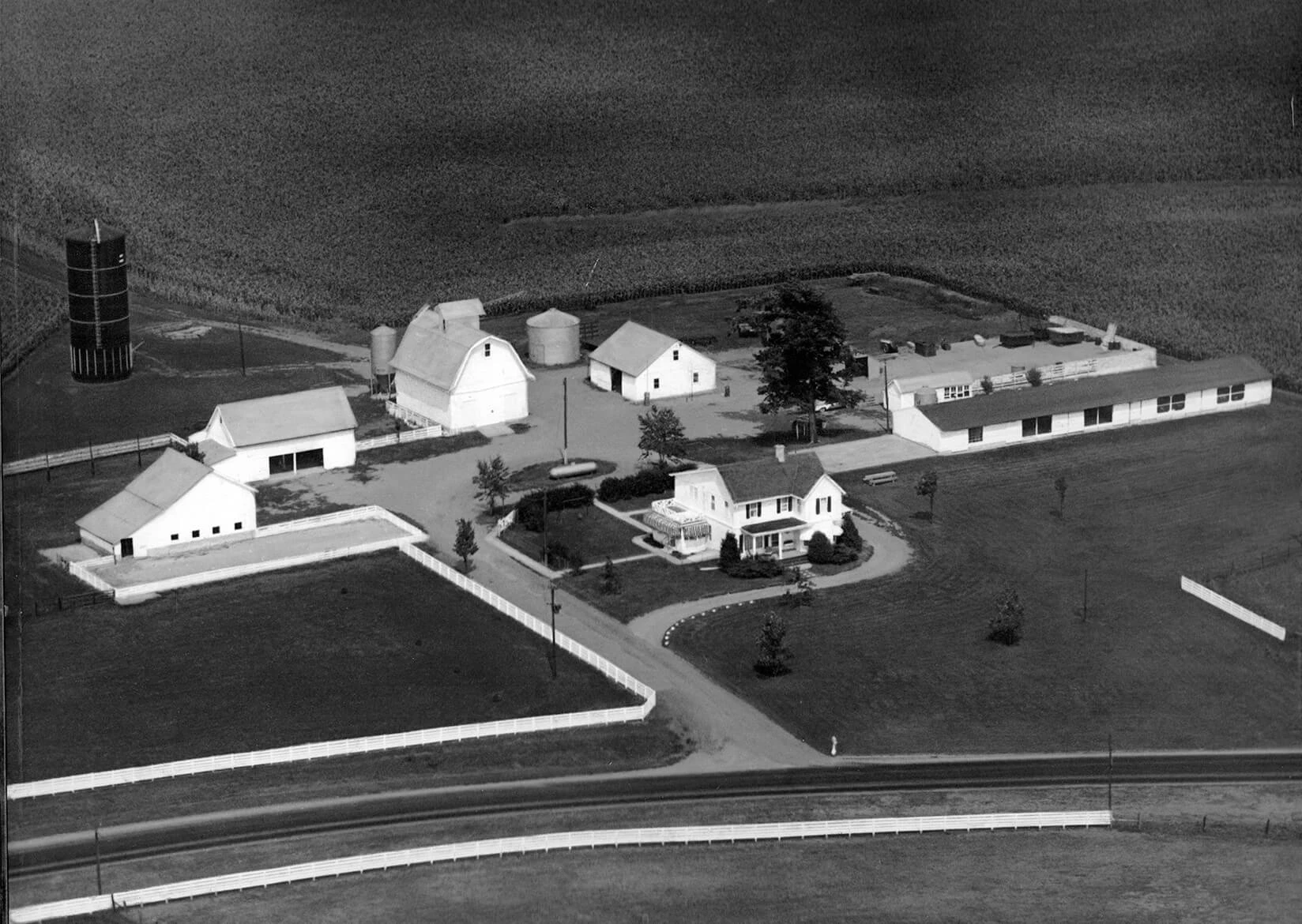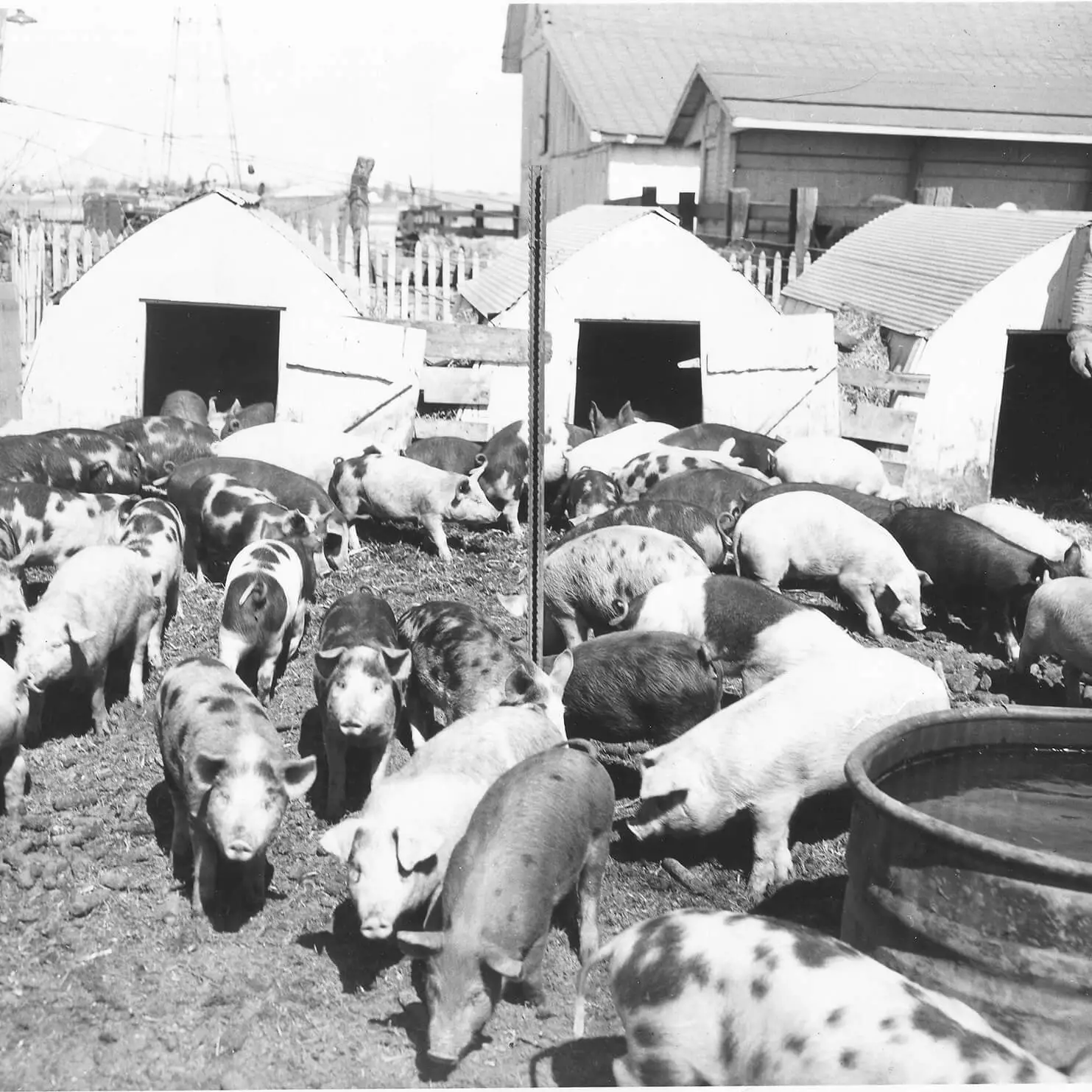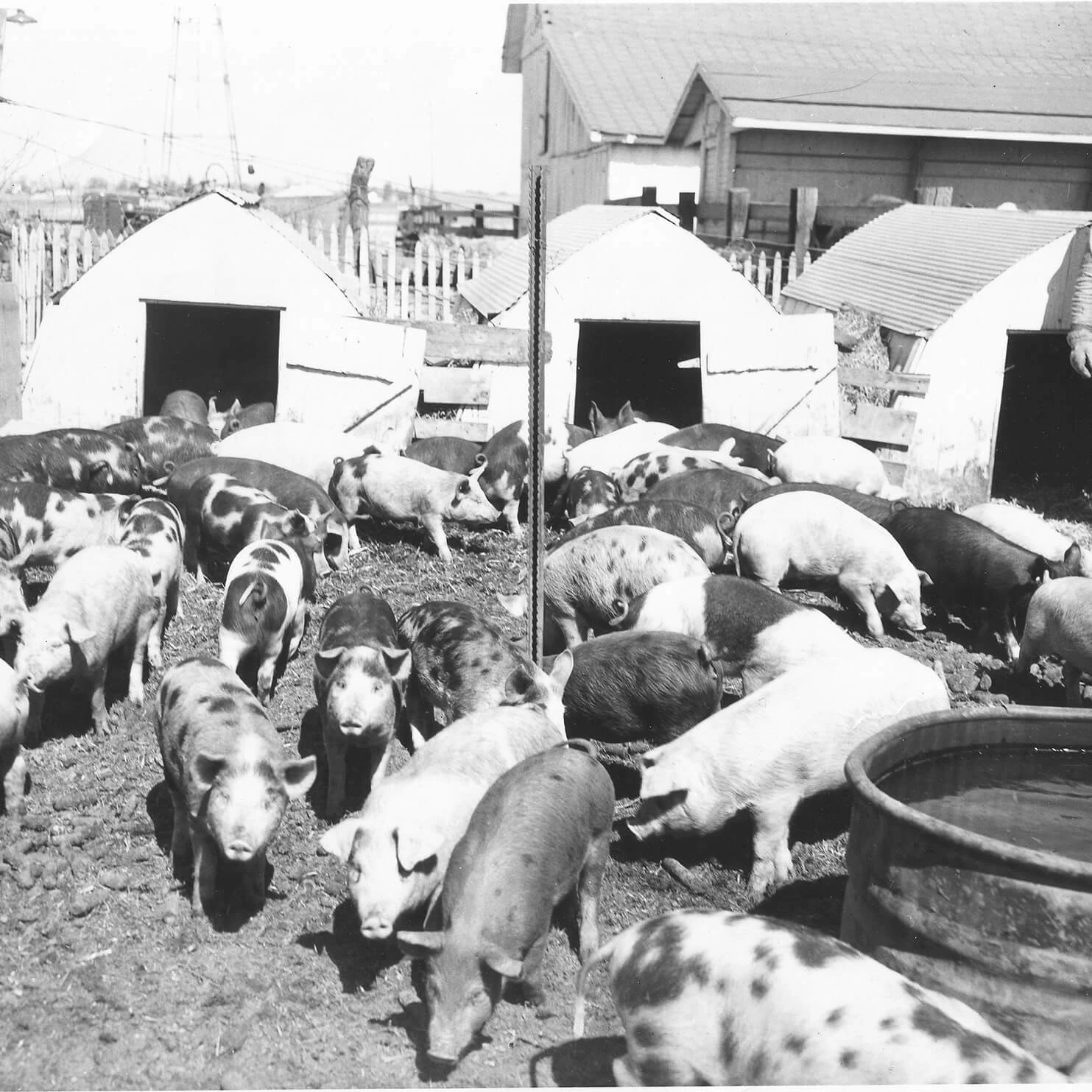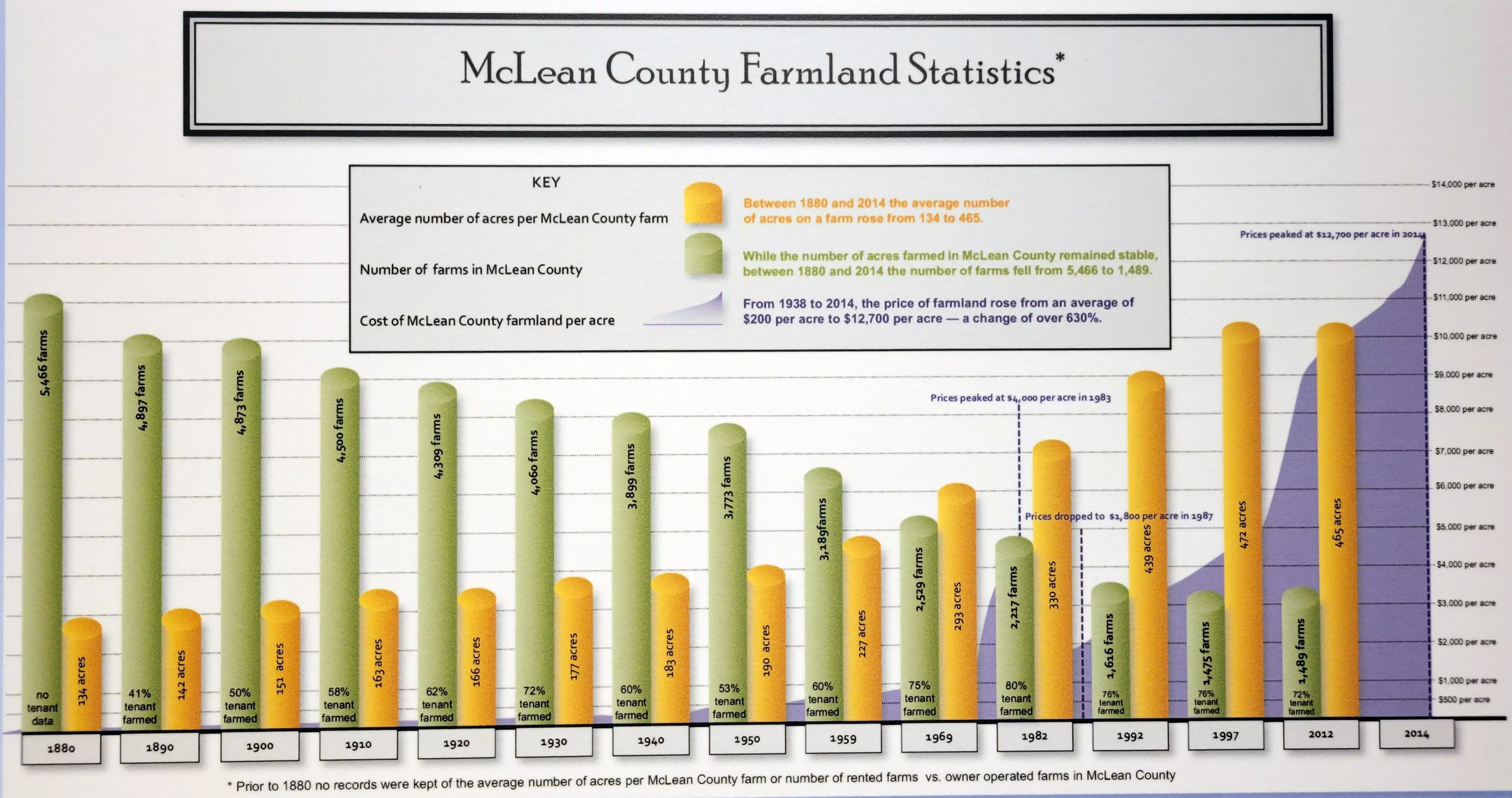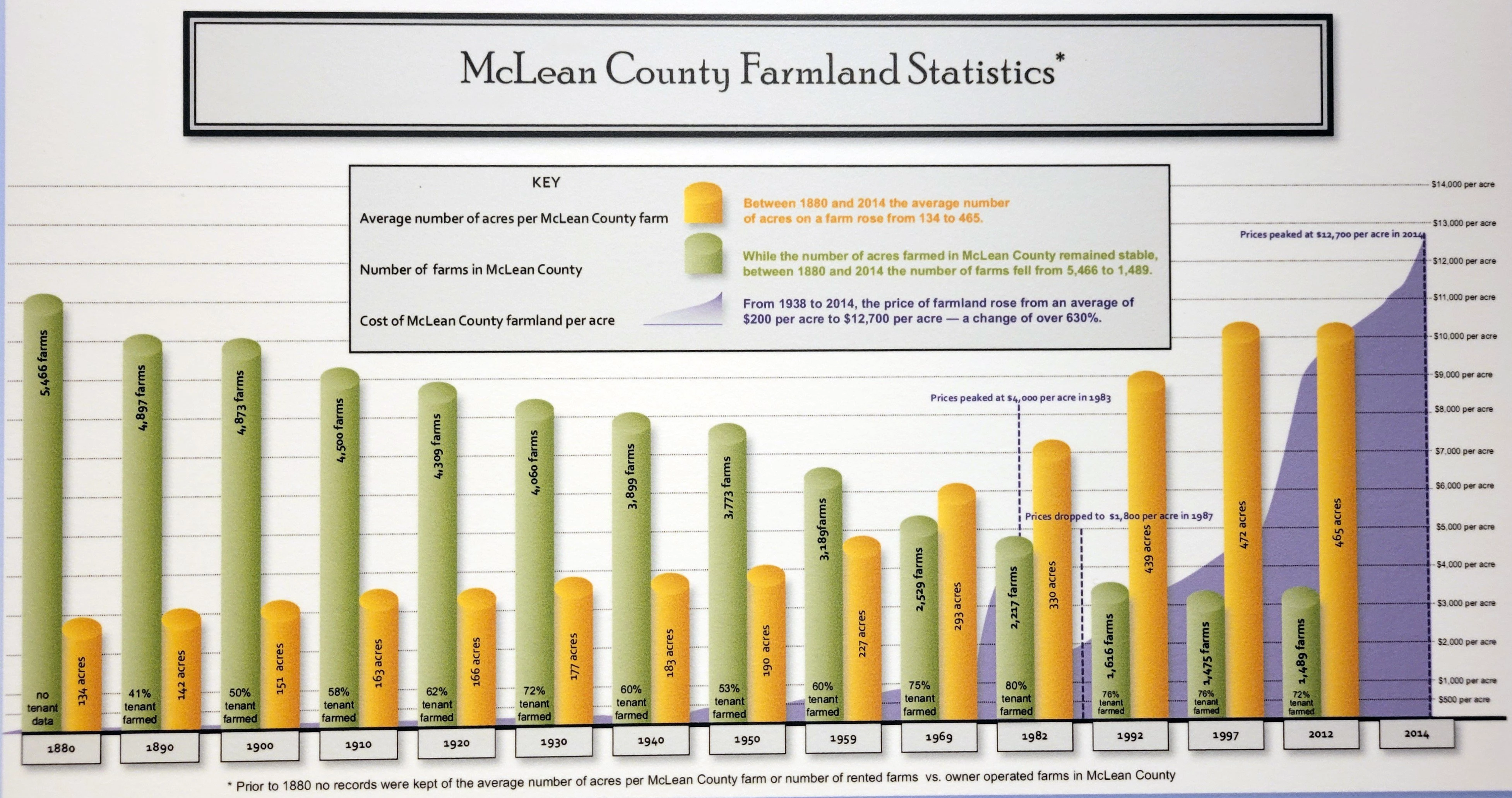Working the Land – 1946 to 2000: Larger Farms
As the costs of farming rose, fewer and fewer children of farmers were interested in the challenges farmers faced.
Wendell Beeler worked as a tenant farmer in various locations in McLean County until he was able to purchase his own farm near McLean in 1955. His son Bill inherited part of the farm and purchased the rest. But when Bill retired, his son was not interested in farm work. Rather than sell the farm, Beeler chose to cash rent the farm to a tenant.
With no family members left to take over, some chose to sell their farms.
On March 18, 1973 a large group of farmers gathered at this McLean County farm sale (see image). Some hoped to purchase a needed piece of equipment at a low price or assess the value of their own similar equipment. Some were there in support of the retired farmer, others just came to socialize.
“Economics have driven us away from the true family farm that we grew up in. Farming is a big business today, and it's very costly. What young man or young lady really wants to come back to the farm for a very small salary?”
— Frank Wieting, Downs farmer, 2015
Those who farmed their own land were free to make their own choices. But tenant farmers and their farm owners, or managers, did not always agree on what should be planted or how a farm should be run.
Differences in opinions and agendas often revolved around investing in the future, such as new or upgraded buildings, or conservation practices.
Lester Fuller had a good relationship with his landlord Mercer Davis, who provided him with both grain bins and a grain dryer.
Once installed, Fuller reported higher yields because he could pick his corn earlier — before it was too dry, or fell down. And, because he dried and stored his grain on the farm, he was able to wait to sell it until prices were higher.
Good tenant farmers have always thought of themselves as stewards of the farms they work on, and it shows in their work.
“You are perhaps a little more careful about what you do if you don’t own the land. In other words you are responsible to a landowner. Even though I don’t own the land, I take care of the land as though I own it.”
— Jim Lindsay, Lexington tenant farmer, 1997
A.K. “Buster” Golden became a tenant on a West township farm in 1953. There he established a successful grain and livestock business.
His son Don joined him in farming in the 1970s.
Together they managed a farrow to finish hog operation that yielded 250 to 300 hogs a year. They also fed 50 to 60 steers a year. But in the early 1980s, their partnership ended abruptly.
Buster and Don returned from town one afternoon to find a man surveying the farm. When asked why, the surveyor responded, “Well the landlady wants to sell the land.” With no other land available for them to rent, they sold all their equipment, Buster retired, and Don moved on to other work.
For some farm owners who have held on to their farms as an investment, there is an appreciation for the good work their tenants do — work that brings them a steady income.
““[My sister and I,] we're blessed. We currently have the third generation of tenants farming our family farm. . . They're incredible farmers and care so much — they make a living for me. It’s because of them that I am able to maintain and keep my farm.”
— Martha Tyner
2015
 Making a Home
Making a Home
 A Community in Conflict
A Community in Conflict
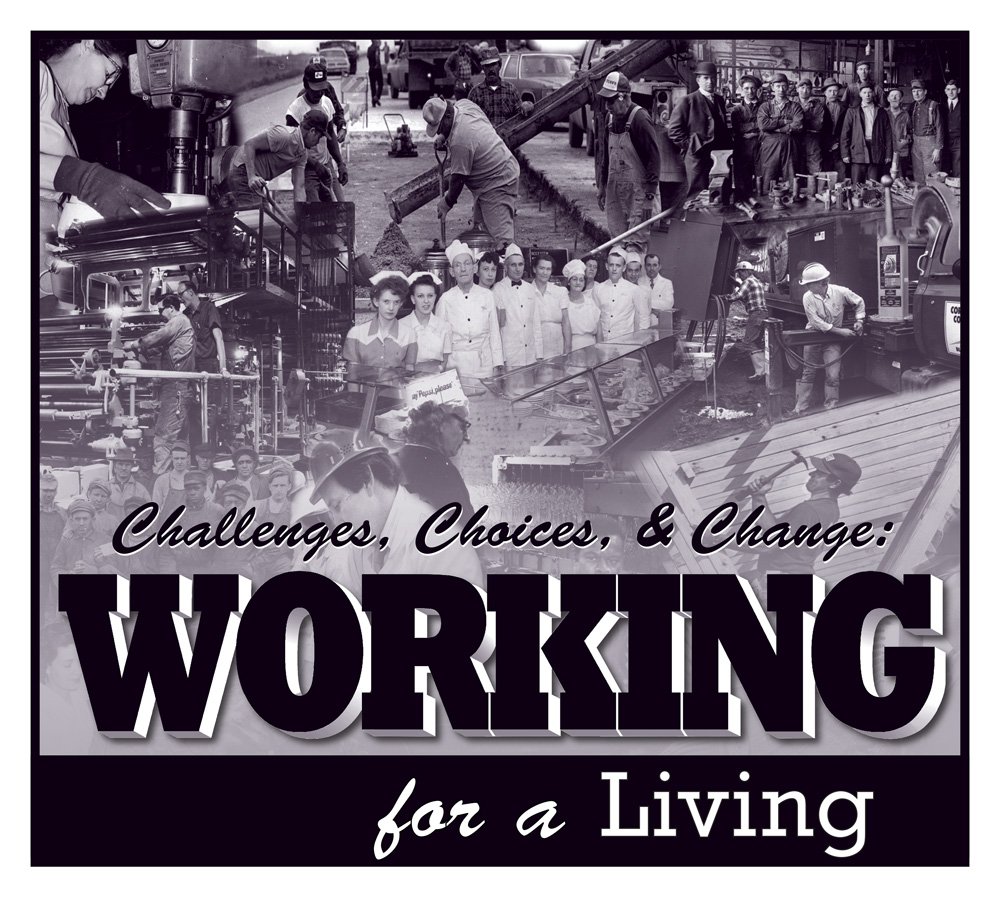 Working for a Living
Working for a Living
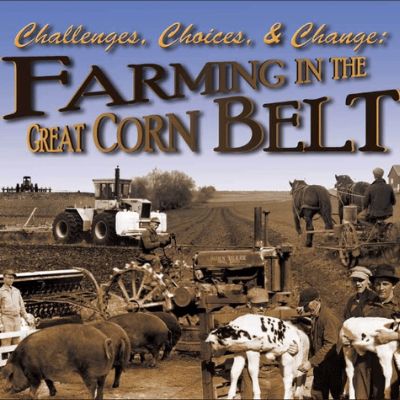 Farming in the Great Corn Belt
Farming in the Great Corn Belt
 Abraham Lincoln in McLean County
Abraham Lincoln in McLean County
